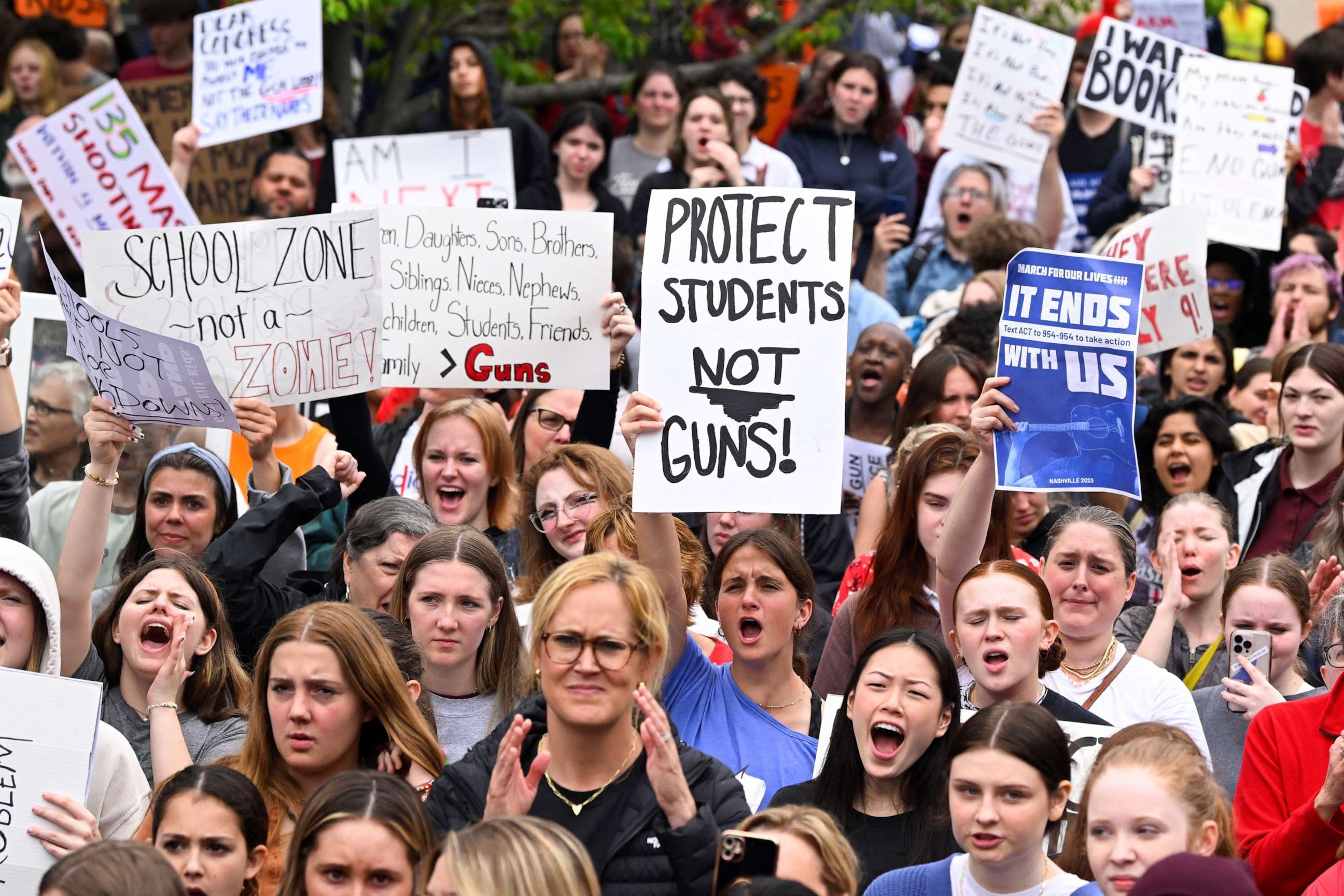Supreme Court reviews federal ban on guns for domestic abusers

The U.S. Supreme Court on Tuesday will hear arguments over a 30-year-old federal ban on firearms for people under domestic violence restraining orders.
The case, U.S. v. Rahimi, is a blockbuster test of a widely popular gun safety regulation and the Second Amendment at a time when firearms are a leading factor in intimate partner violence nationwide.
An estimated 12 million American adults are victims of domestic abuse every year; on average, 70 die every month from being shot by an intimate partner, according to the Centers for Disease Control and Prevention.

A woman is five times more likely to die from a domestic abuse situation if a gun is involved, according to the Johns Hopkins Center for Gun Violence Solutions.
The justices are taking up the issue one year after a landmark decision made it more difficult for governments to restrict individual gun rights. The high court's ruling said only laws "consistent with the nation's historical tradition of firearm regulation" can be allowed.
"This is an opportunity for the justices to clarify the test, particularly as it applies to domestic abusers, and to a whole host of incredibly effective gun violence prevention laws," said Kelly Roskam, director of law and policy at the Center for Gun Violence Solutions.

The 1994 federal statute at the center of the case requires thousands of domestic violence restraining orders issued each year by federal and state judges to be reported to the national background check system. In turn, they serve as a basis to deny a firearm sale.
More than 77,000 attempted firearm purchases by alleged domestic abusers have been blocked since 1998, according to the FBI.
"We know that it's not just intimate partners murdering their partners. We know that they're doing it with firearms and that these laws are preventing them from doing that," said Roskam.
The gun ban is being challenged by Zackey Rahimi, a Texas drug dealer with a history of violence, who was indicted on charges of illegal gun possession while under a protective order secured by his girlfriend.
He argues in court documents the law is not supported by American history and tradition. Earlier this year, the Fifth Circuit Court of Appeals agreed, calling the measure an "outlier…that our ancestors would never have accepted."

"This statute actually ends up disarming a bunch of law-abiding or otherwise good people that you might not expect when you first look at it," said Aidan Johnston, a lobbyist with Gun Owners of America, which is backing Rahimi. "We're fighting for the victims here who are disarmed by mutual restraining orders."
The Biden administration, which is defending the law, insists the nation has a broad history and tradition of disarming people who are not "responsible, law-abiding citizens" -- even if there is no exact historical replica of a law targeting domestic abusers.
"American legislatures have long disarmed individuals whom they have found to be dangerous, irresponsible, or otherwise unfit to possess arms," the government says in court documents.
While the Supreme Court's six-justice conservative majority has been generally advanced an expansive view of the Second Amendment -- and closely scrutinized gun safety regulations, at least two justices have made clear they are wary of going too far.

"Properly interpreted, the Second Amendment allows a 'variety' of gun regulations," Justice Brett Kavanaugh pointedly noted in a concurring opinion to last year's decision in New York State Rifle and Pistol Association v. Bruen.
Justice Amy Coney Barrett has also voiced clear support for gun restrictions on "dangerous people," writing as an appeals court judge that some limits are entirely constitutional.

A decision in the Rahimi case is expected by the end of June 2024.




